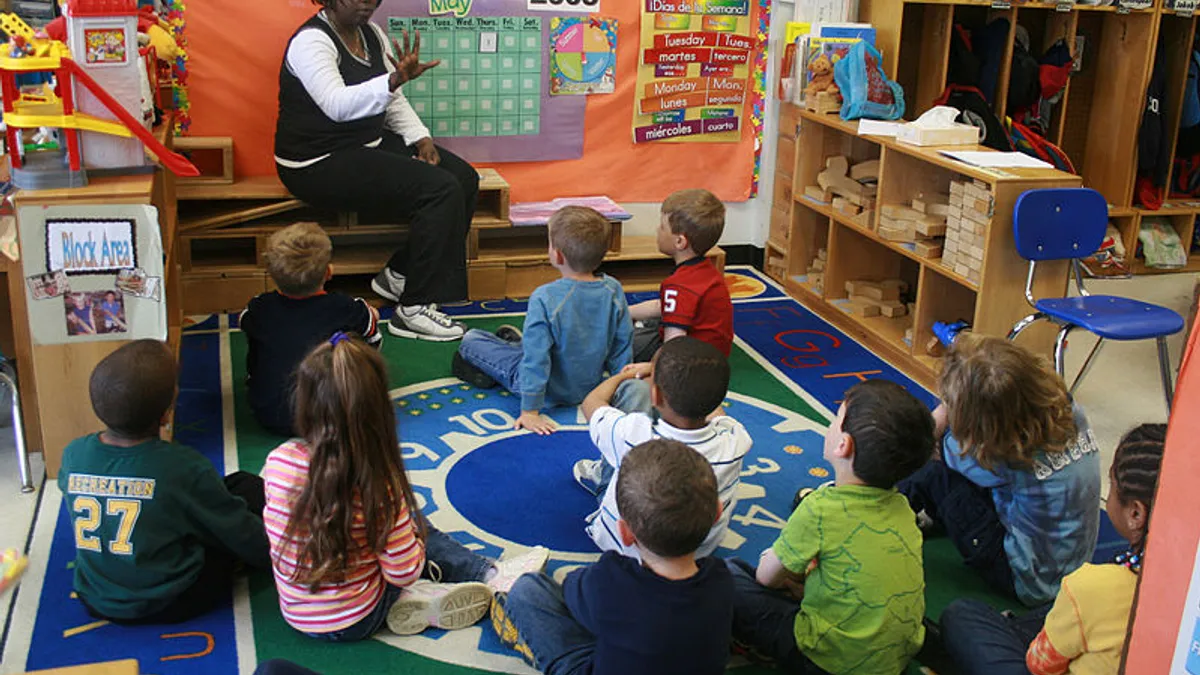Dive Brief:
- This year, the 50 state legislatures introduced a total of 924 early education-related proposals that included everything from statewide universal preschool to quality rating systems.
- Of the bills that did pass, most represented small moves toward making public preschool and early childhood care available to more students and diversifying the programs available.
- The biggest action came from North Dakota, which created a new program to provide vouchers for preschool for low-income four year olds.
Dive Insight:
The slow progress of early childhood legislation is not surprising. It has historically moved at a gradual pace as states make small adjustments to their preschool systems.
"Everything moved in a positive direction, but if you step back and say, 'What's the pace of growth?,' it's so slow,” Steven Barnett, director of the National Institute for Early Education Research, told Education Week in May..
Other notable pre-K moves included Minnesota, where Gov. Mark Dayton almost precipitated a government shutdown by refusing to pass a budget that didn’t include a universal preschool program. A compromise that included a $95 million increase in early childhood education thwarted the closure. Washington state also passed a massive funding bump for early childhood teacher training and expanded access, while Texas passed a bill to include quality rankings with its state preschool program.














